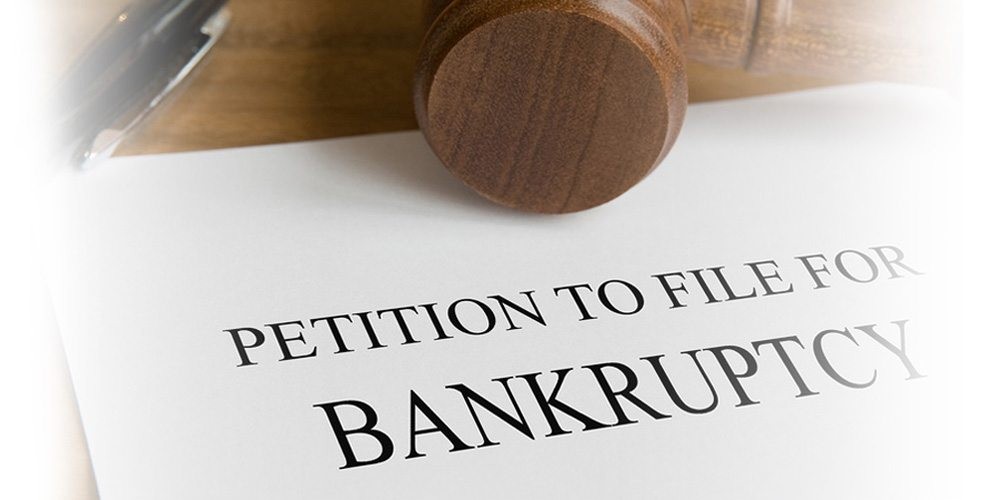When we marry, most people intertwine our income, our property, our debts, and every other aspect of our lives with a spouse. We may raise children, share bank accounts, buy property, or any combination of the above. Sometimes, despite our best intentions and sincerest beliefs, our marriages are not meant to last and ultimately result in divorce. No great surprise, then, that in the absence of a pre-nuptial agreement, divorces can potentially mean financial ruin when we seek to untangle our comingled financial lives by allocating jointly held marital assets and allocate responsibility for jointly held marital debts. This, while also paying legal fees and facing a potential loss of household income. Owing to all these reasons, divorce often goes hand-in-hand with personal bankruptcy for one or both spouses. Indeed, filing for bankruptcy protection as a part of your divorce process can bring many benefits and allow you exactly the financial fresh start you need. As a dedicated bankruptcy attorney, I help scores of people to resolve outstanding debts before, during, and after their divorce processes. My article seeks to outlay some important considerations and discuss how bankruptcy is often a sound financial choice amid a divorce proceeding. I begin with a discussion on the top three considerations for how to most effectively and efficiently use a bankruptcy filing to complement your divorce proceedings.
The first, and arguably the most important, consideration is carefully timing your bankruptcy petition. I advise my clients that there are essentially two ways to go about filing a bankruptcy in the same orbit as a divorce proceeding. If your relationship to your separated spouse is amiable, which is not always a guarantee, you may consider a joint Chapter 7 case. There are income and asset requirements, however, if you do qualify, you may be able to eliminate individual and joint debts of both spouses prior to finalizing your divorce. That has the potential to make your divorce process immensely simpler through not having to allocate responsibility for debts. If your relationship to your separated spouse is not amiable and/or your divorce is already finalized, you should consider an individual filing in Chapter 7 or Chapter 13 in order to resolve all of your debts and give you a financial fresh start. Separating couples pending divorce sometimes ask me if they could file a Chapter 13 and still pursue their divorce. Yes – a joint Chapter 13 with your separated spouse is allowable so long as you are married at the time filing the joint Chapter 13. I frequently advise against this course because a Chapter 13 plan lasts between three and five years and if communications or civility breaks down during that time, you run the risk of substantial problems. With timing under our belts, property is the next important consideration.
The second, and also very important, consideration is determining the ownership status of various pieces of property. One of the requirements for every bankruptcy filing is to fully account for all property that we own at the time we file the case. A divorce proceeding necessarily complicates a truthful and honest accounting of property, especially if the spouses have executed a Marital Settlement Agreement (MSA) or the Court has entered an order regarding the allocation of property. If you have an MSA or other court order that dictates ownership of certain pieces of property, you should share that information with your bankruptcy attorney. How much property you own will necessarily impact how you will protect various pieces of property and ensure that you are able to keep them. It is also worth noting that a qualified bankruptcy attorney can assist you if you want to surrender your interest in marital property like a home or a vehicle and eliminate your portion of the obligation on those debts. Bankruptcy will not help remove your name from deeds or titles, so you will want to chat with your divorce attorney to tie up those loose ends. With timing and property considerations firmly in our grasp, the final important consideration is your debts.
The third, and also very important, consideration is determining your joint and separate debt picture. Another requirement for every bankruptcy filing is to fully account for all debts that we owe prior to filing the bankruptcy case. A divorce proceeding will also necessarily complicate a truthful and honest accounting of debts, especially if an MSA or other court order dictates an allocation of those debts. If you have an MSA or other court order that dictates a debt allocation, you should share that information with your bankruptcy attorney. It is also worth noting that some debts pursuant to your divorce will not be dischargeable through a bankruptcy. Debts for alimony or child support and debts “in the nature of domestic support” pursuant to 11 U.S.C. §523(a)(15) including assignment of attorney’s fees and property settlements. Again, it is imperative to provide the court order or MSA to your bankruptcy attorney to determine exactly what debts may be discharged. With these three considerations at the forefront of our minds, I turn, finally, to how bankruptcy can achieve a financial fresh start to complement your divorce.
The end goal of a divorce is a clean break – a legal and lifetime separation from your former spouse that enables you to pursue a fresh start to embark upon the rest of your life. The end goal of a bankruptcy is similarly a clean break – a legal and lifetime separation from your former creditors that enables you to pursue a financial fresh start free from the debts that you owe them. No matter the complexity, a personal bankruptcy can complement your divorce proceeding by eliminating the debts you shared with your former spouse and eliminating debts you owed on your own. Once you reach the end of both the divorce and bankruptcy processes, you will achieve a complete and total fresh start that may not have been possible otherwise.
Divorce and bankruptcy share one key element: they are both deeply personal and deeply difficult decisions that many well-meaning people must face. The keys to making the best determination for you in both avenues will lie with pursuing your best interests and having the excellent representation to pursue those interests. The experienced, proven, and trusted bankruptcy attorneys at Mooney Law stand ready to assist you and answer your questions. Consultations for bankruptcy are always free at Mooney Law. To schedule a FREE consultation, call us today at 717-200-HELP or 717-632-4656 or at 717-200-HELP. You can also visit the firm website at https://www.mooney4law.com.


